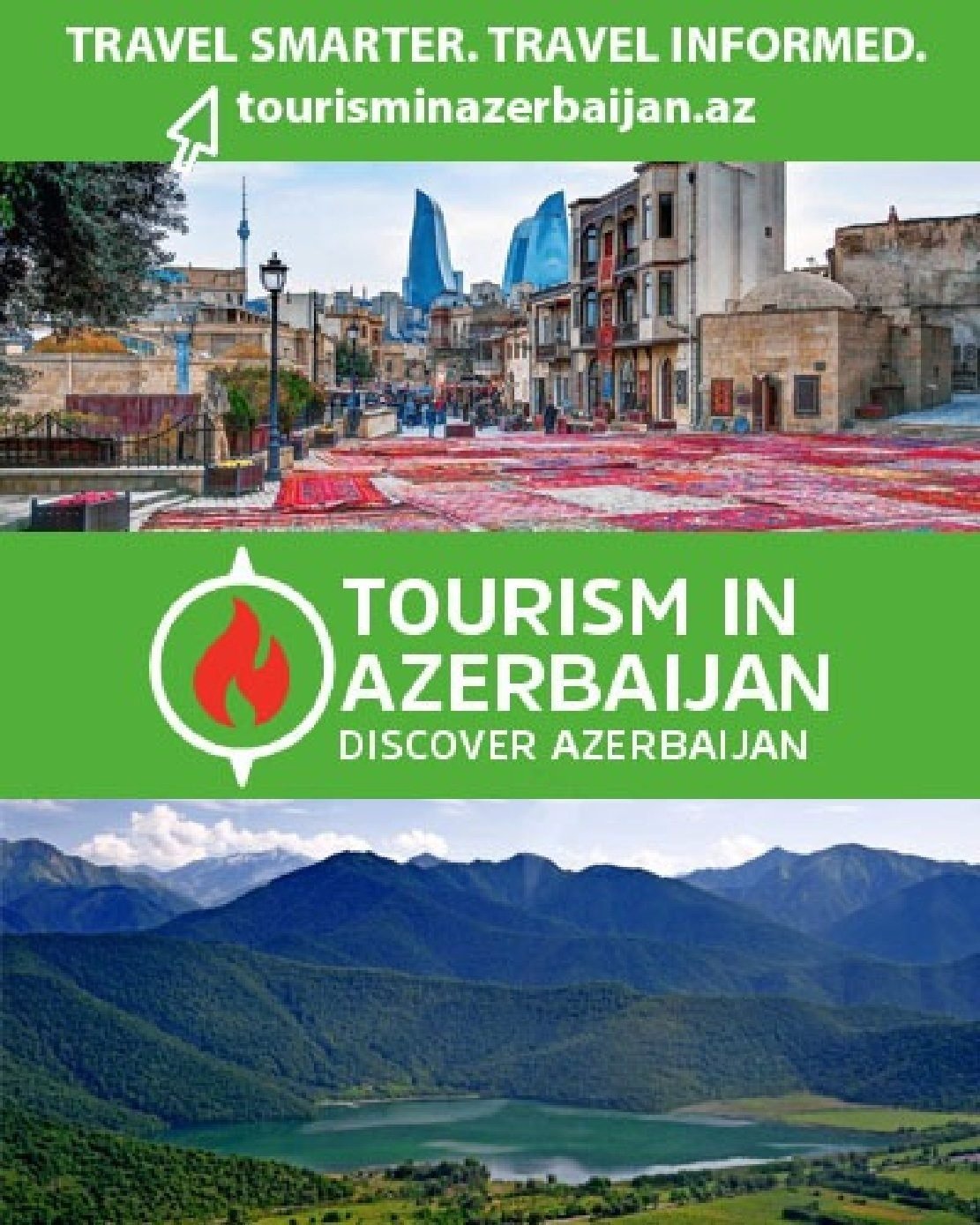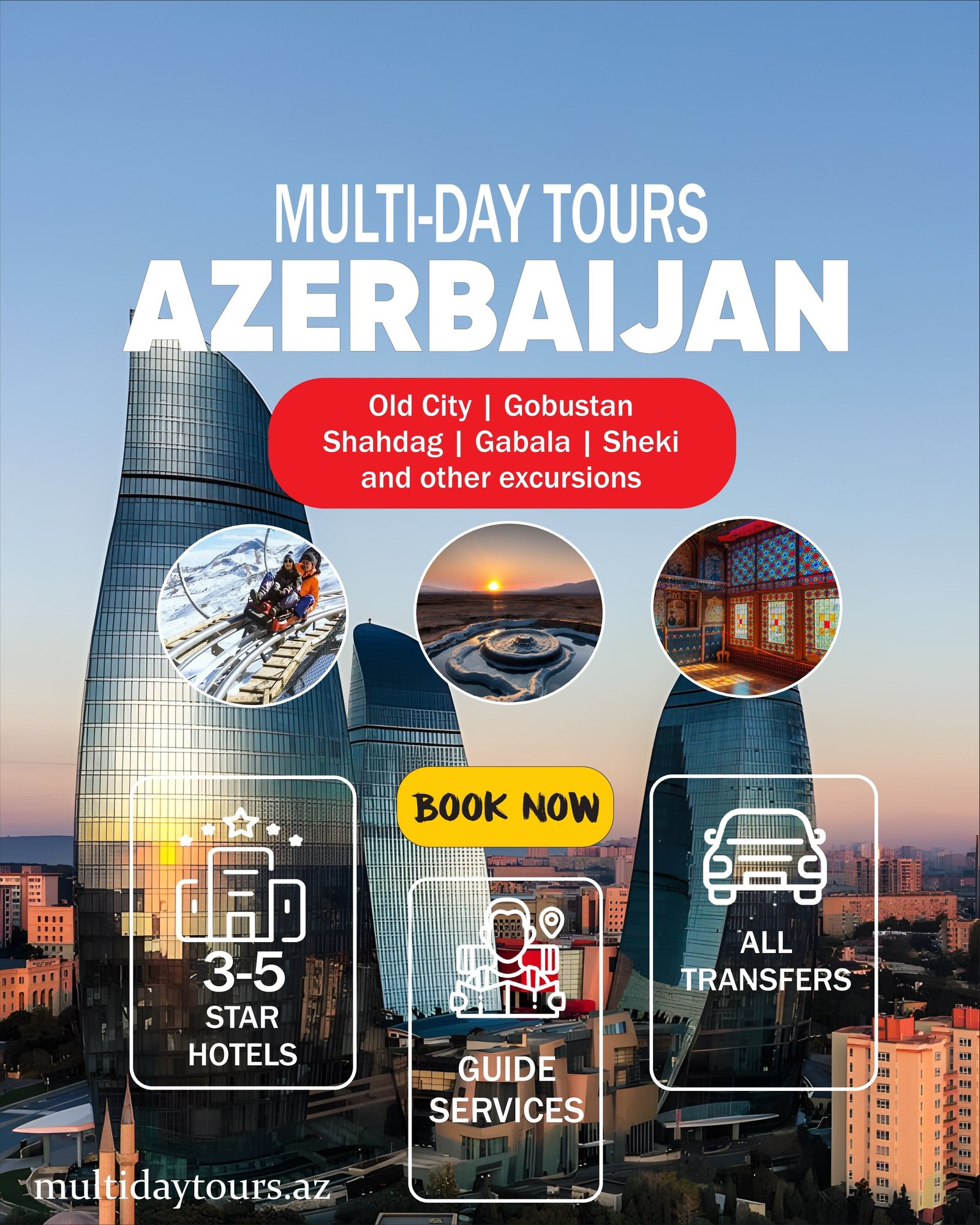-
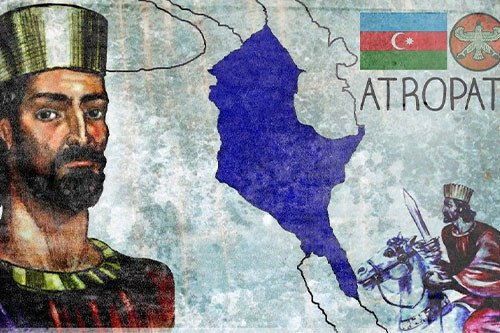 What Is the Origin of the Name "Azerbaijan"? 4 Theories Behind the Country's Name
903
1
What Is the Origin of the Name "Azerbaijan"? 4 Theories Behind the Country's Name
903
1
-
 Caspian Caviar: Discovering the Black Gold of Azerbaijan
254
0
Caspian Caviar: Discovering the Black Gold of Azerbaijan
254
0
-
 May 28 – Azerbaijan’s Independence Day: A Symbol of Pride and Freedom
494
0
May 28 – Azerbaijan’s Independence Day: A Symbol of Pride and Freedom
494
0
-
 Discover Nizami Street — Baku’s Cultural and Social Hub
494
1
Discover Nizami Street — Baku’s Cultural and Social Hub
494
1
-
 From Euro to Manat: How Azerbaijani Currency Tells the Story of Culture, History, and National Spirit
423
0
From Euro to Manat: How Azerbaijani Currency Tells the Story of Culture, History, and National Spirit
423
0

Yanar Dag — The Eternal Flame of Azerbaijan
On the slopes of a dusty hill near the village of Mammadli, just outside Baku, fire has been burning for as long as anyone can remember. It flickers not from torches or lamps, but from the earth itself — a living breath of flame rising from the heart of Azerbaijan.This is Yanar Dag, “the Burning Mountain,” one of the country’s most mysterious and mesmerizing natural wonders — and a living symbol of the Land of Fire.The Fire Born of the EarthThe phenomenon of Yanar Dag is entirely natural. Beneath the surface of the Absheron Peninsula, streams of natural gas escape through fissures in the rock. When they meet the open air, they ignite, producing tongues of fire that dance endlessly along the hillside. The flames, stretching for about ten meters, burn with unwavering intensity — even in rain, wind, or snow. At night, they glow like liquid gold, transforming the landscape into something both surreal and sacred.Watching the fire is a strange experience — a mixture of awe, calm, and reverence. There’s a sense that the earth itself is alive, whispering ancient stories through every flicker of its eternal breath.Where Faith and Fire Were BornLong before science gave this phenomenon a name, the flames of Yanar Dag were worshiped. Travelers along the ancient Silk Road spoke of a place where the ground itself burned, and light poured from the soil. Such fires inspired the rise of Zoroastrianism, one of the world’s oldest religions, which flourished in this very region. For Zoroastrians, fire symbolized purity, truth, and divine energy — not destruction, but the very essence of life. Standing before Yanar Dag, one can almost imagine the ancient priests performing rituals in its golden glow, their chants carried away by the Caspian wind. The flames seem timeless, connecting the modern world with the spiritual roots of humanity’s relationship with nature.Legends of the Burning MountainLocal legends add a mystical charm to Yanar Dag. One story tells of a shepherd who struck a match and accidentally set the hillside alight — yet the flames never went out. Another legend claims that the fire was a divine sign, guiding weary travelers through the night. In ancient times, caravans crossing the Caspian coast could see this glowing mountain from afar — a beacon of warmth and safety.To this day, locals believe that Yanar Dag embodies a protective spirit, keeping misfortune at bay and blessing those who visit with clear thoughts and strong hearts.The Energy That Never DiesWhat makes Yanar Dag truly captivating is not just the fire itself, but what it represents. This eternal flame is a symbol of continuity — of the earth’s silent power, the endurance of nature, and the constancy of spirit. At dusk, as the light fades and the fire glows brighter, time seems to dissolve. The sound of crackling flames mixes with the wind, and for a brief moment, everything feels suspended — human and nature, past and present, breath and fire, all as one.Yanar Dag is more than a natural wonder. It is a metaphor for Azerbaijan — a nation that carries the warmth of its ancient heritage into a modern, luminous future.The Land of Fire Lives OnToday, Yanar Dag is recognized as a protected natural monument, a place where science and legend meet. But for the people of Azerbaijan, it remains something deeper — a reminder of the eternal flame that burns within their culture, their land, and their spirit. It’s no coincidence that the emblem of Azerbaijan features a blazing flame, nor that the very name “Baku” may come from the ancient Persian Bagavan — “the City of the God of Fire.”To stand before Yanar Dag is to witness the dialogue between earth and sky. This fire is not an accident, nor a spectacle; it is the heartbeat of the land. It burns not to consume, but to illuminate — a living testimony to the eternal light that defines Azerbaijan.

The Great Silk Road in Azerbaijan: A Path That United Civilizations
Centuries ago, caravans of camels crossed the dusty roads of Asia, carrying not only silk and spices but also dreams of discovery, connection, and prosperity. The Great Silk Road was far more than a trade route — it was a cultural phenomenon that bound together East and West, shaping the destinies of entire civilizations. And few places embody its spirit as vividly as Azerbaijan.A Crossroads of CivilizationsThe land of present-day Azerbaijan has long been a natural bridge between Asia and Europe. Here, where mountains meet steppe and the Caspian Sea touches the desert, the Silk Road carved its way through the heart of the region. Along these routes flowed not just goods, but also ideas, technologies, beliefs, and languages. The route passed through ancient cities such as Baku, Ganja, Shamakhi, Sheki, Barda, and Nakhchivan — each one a thriving hub of commerce and culture. Bustling bazaars echoed with the sounds of many languages: Persian and Arab traders bartered with Indian spice merchants and Byzantine envoys. Positioned at this vital crossroads, Azerbaijan became a bridge between East and West, North and South.Caravans and CitiesFor centuries, caravans moved across Azerbaijan loaded with Chinese silk, Syrian glass, European silver, and fine textiles. In return, they carried away carpets, copperware, ceramics, salt, wine, and the famous Baku oil, which was already being extracted by hand long before the industrial age. To support the travelers, magnificent caravanserais — the ancient equivalent of roadside inns — were built along the routes. Many still stand today. In Baku, Sheki, and Shamakhi, their arched vaults and thick stone walls remind visitors of a time when merchants gathered by the fire to rest, drink tea, and exchange stories from across the world. These caravanserais were more than mere shelters — they were melting pots of cultures. Within their walls, languages mixed, deals were struck, and legends were born.A Land of Trade and CreationAzerbaijan was not just a passageway — it was a source of wealth and artistry in its own right. Copper from Ganja, silk from Sheki, wine from Shamakhi, salt from Nakhchivan, and oil from Baku were all prized commodities. The country’s artisans produced exquisite carpets, metalwork, and ceramics that found their way into markets from Persia to Constantinople. The crafts of Azerbaijan — carpet weaving, woodcarving, and metal engraving — reflect the confluence of cultures that once passed through its lands. Each design, each ornament, is a silent testament to centuries of exchange between peoples and empires.The Spirit of the RoadWalking through the narrow cobblestone streets of Sheki today, one can almost hear the echoes of traders calling out their goods or imagine the scent of spices wafting through the air. Known for centuries as a center of silk production, Sheki still preserves its traditions — its colorful textiles and stained-glass patterns are a living continuation of the Silk Road’s legacy. The route also left a mark on Azerbaijani architecture. The caravanserais, mosques, and minarets that dot the landscape are living relics of that era, blending Islamic, Persian, and Caucasian styles into a unique aesthetic that continues to inspire.The New Silk RoadHistory often moves in circles. Today, Azerbaijan once again plays a central role in connecting East and West through modern initiatives such as the Baku–Tbilisi–Kars railway and the Trans-Caspian Transport Corridor. These projects revive the spirit of the Silk Road in a contemporary form — fostering cooperation, trade, and exchange between nations.If in ancient times silk and spices traveled these routes, today it is ideas, technologies, and partnerships that flow through Azerbaijan. The path may look different, but its essence remains the same.A Road Without EndThe Great Silk Road is not just a memory of the past — it is a living reminder that our world has always been interconnected. And Azerbaijan, as it was centuries ago, continues to stand as a meeting place of cultures, people, and ideas. Traveling through this land, one can feel that every road here is part of that ancient route — a timeless journey that still unites civilizations.

Azerbaijani Carpets: Symbols That Convey Eternity
Azerbaijani carpets are far more than household items or decorative pieces. They are woven chronicles of history, culture, and emotion — a language of symbols and colors through which generations have expressed their worldview. Each pattern on an Azerbaijani carpet tells a story without words, one that reflects the very soul of the nation.The art of carpet weaving in Azerbaijan dates back thousands of years. Archaeological discoveries prove that as early as the Bronze Age, people living in this region were already creating intricate woven patterns and dyeing threads with natural pigments. In the lives of both nomadic tribes and settled villagers, carpets held a special place: they covered floors and walls, served as bedding and gifts, and symbolized warmth, prosperity, and hospitality. Every carpet was a mirror of life — a reflection of traditions, beliefs, and hopes passed from one generation to the next.Each region of Azerbaijan developed its own distinctive style, easily recognizable even to the untrained eye. In the northern city of Quba, weavers favor bold contrasts and geometric motifs inspired by nature. The Shirvan region is known for delicate patterns and harmonious color palettes, while Karabakh carpets are famous for their deep reds and expressive large-scale designs reminiscent of miniature paintings. These regional differences are like dialects of a shared cultural language, each adding its own voice to the country’s rich artistic heritage.The process of creating a carpet has always been more than craft — it is an act of devotion. It begins with selecting fine wool or silk, which is then spun and dyed using natural materials. Red comes from madder root, blue from indigo, yellow from saffron or onion peel. Thus, the carpets absorb the very colors of Azerbaijani nature — the golden plains, green valleys, and deep blue skies.Weaving was traditionally women’s work. In small villages, mothers, daughters, and sisters would gather around the loom for months, sometimes years, patiently knotting thread after thread. Each knot carried a wish, a prayer, a fragment of life. Carpets were woven for weddings, for the birth of a child, or to mark a new beginning. The motifs were deeply symbolic: diamonds and stars offered protection, floral designs stood for prosperity, and intertwined lines represented unity and harmony.Color, too, has its own language. In Azerbaijani carpets, no shade is random — every hue carries meaning. Red expresses vitality and strength; blue stands for peace and spiritual depth; green connects to nature and fertility; and white symbolizes purity and sincerity. Together, these colors form not just decoration, but emotion — a reflection of the artisan’s inner world and the collective soul of the people.Over the centuries, carpet weaving became a defining part of Azerbaijani cultural identity. Even in the modern world, where machines dominate most crafts, traditional carpets are still woven by hand with the same patience and love. Young artisans learn from their elders, inheriting not only skills but a philosophy: a carpet is not just fabric — it is memory made visible, a bridge between past and future.The symbolic and artistic value of Azerbaijani carpets has been recognized internationally. In 2010, Azerbaijani carpet weaving was inscribed on UNESCO’s Representative List of the Intangible Cultural Heritage of Humanity. The Azerbaijan National Carpet Museum in Baku — a stunning building designed to resemble a rolled-up carpet — serves as both a museum and a living cultural center. It preserves priceless examples of ancient carpets while promoting contemporary craftsmanship through exhibitions, workshops, and research programs.Yet the true beauty of Azerbaijani carpets lies beyond museum walls. It lives in homes across the country, where old carpets still hang on walls or rest on floors as family heirlooms. They carry the warmth of hands that created them, the scent of wool, the glow of natural dyes that have survived centuries. Each one is a quiet witness to time, memory, and love.Perhaps this is the secret of Azerbaijani carpets — in their threads, history and art intertwine with human emotion and timeless beauty. They are not merely decorations but storytellers, preserving the nation’s identity and proving that even the simplest threads can weave eternity.

National Heroes of Azerbaijan: The Hearts That Keep the Nation Alive
Azerbaijan is a land where history breathes alongside its people. It is not only found in the ancient stones, the intricate walls of Icherisheher, or the wind carrying the scent of the Caspian Sea. History lives in the hearts of those who understand that their homeland is more than just land—it is memory, culture, and values to be preserved.The heroes of Azerbaijan are the people whose actions and creativity shaped the nation. Among them are those who fought for freedom, those who wrote poetry and music, and those who built schools, hospitals, and nurtured the arts. Their names live in the collective memory of the people, but even more vividly, they live in the stories of their lives—filled with courage, compassion, and inspiration.Spiritual and Cultural HeroesKhurshidbanu Natavan, the “Pearl of Karabakh,” was not only a poet but a woman whose life exemplified nobility and compassion. She established schools for girls, built roads and water systems, helped the poor, and supported the arts. Her poetry radiated kindness, gentleness, and the power of the national spirit, inspiring generations long after her time.Equally significant is Samed Vurgun, a poet whose words spoke directly to the heart of the nation. His poems about the homeland, its people, and nature were both a declaration of love and a call to care for one’s country. Vurgun’s verses taught generations to cherish their culture and land, showing that love for one’s homeland manifests in daily acts, not just words.Rasul Rza, a philosopher and poet, devoted his life to seeking truth and teaching it to others. He understood that the strength of a nation lies in conscience and thought, and every piece he wrote was a lesson in wisdom. His works instilled the value of internal integrity, leaving a spiritual legacy that continues to guide Azerbaijani writers and thinkers.The nation’s musical heritage owes much to Gara Garayev, a composer who fused Eastern traditions with symphonic modernity. His music conveys both pride and tenderness, capturing the richness of history and philosophy. Each note forms a bridge between generations, allowing people to feel the rhythm of their homeland.Finally, Musa Nagiyev, a philanthropist, dedicated his wealth to building schools, hospitals, and shelters. He understood that true strength is measured not by wealth, but by the good one can bring to others. Nagiyev’s life is a testament to the idea that heroism can also be found in acts of kindness and compassion.Defenders of the HomelandIf spiritual heroes preserve the soul of a nation, military heroes safeguard its strength. Every generation of Azerbaijanis has had its defenders, individuals who placed duty above personal safety.Mehdi Huseynzade, known as Mikaylo, became a legendary figure of World War II. He did more than fight; he created hope where it seemed lost. Organizing operations with the Italian Resistance, he risked his life countless times, inspiring his comrades and leaving a lasting legacy. His heroism is proof that love for one’s homeland is measured not in kilometers, but in the depth of one’s heart and courage.During the tragedy of Khojaly, Chingiz Mustafayev, a journalist and cameraman, became the voice of truth. He risked his life to document the war, showing the world the suffering and heroism of ordinary people. His courage demonstrated that words and images could carry the same weight as weapons in the fight for justice.Albert Agarunov, a tank commander from Baku of Jewish heritage, fought valiantly for Shusha. His bravery symbolized the unity of nations within Azerbaijan, proving that patriotism transcends religion and ethnicity.Modern heroes like Polad Gashimov and Ilgar Mirzayev continue this legacy of courage. Their dedication and willingness to sacrifice themselves inspire millions, showing that heroism is not an abstract concept, but a daily choice.Countless others—Khudjat Guseynov, Fakhraddin Najafov, Seymur Mamedov, Ilgar Ismailov, Rovshan Aliyev—may not be widely known, but their deeds form the backbone of Azerbaijan’s identity, revealing a nation forged by honor, dedication, and sacrifice.Martyrs’ Alley — The Heart of BakuOn a hill overlooking the Caspian Sea, the Eternal Flame of Martyrs’ Alley burns. People come here to feel the magnitude of memory and to connect with those who gave everything for their country. The black granite slabs mirror the sky, inscribed with the names of heroes. These are not just words, but symbols of lives given for the future.Martyrs’ Alley is more than a memorial—it is the soul of the city, a sacred bridge between generations. Every evening, the flickering flame reminds everyone that the gratitude of the nation will never fade.A Legacy That Never FadesToday, Azerbaijan’s heroes live not only in monuments and books, but in every act of kindness, in honest work, in love for people, and in the preservation of culture and history. Their lives teach future generations that heroism comes in many forms: some take up arms, others wield pens, brushes, or open hearts. As long as Natavan, Vurgun, Mustafayev, and Gashimov are remembered, as long as the Eternal Flame burns and Garayev’s music plays, Azerbaijan will stand proud, bright, and eternal.

The Sense of Style in Azerbaijan: A Harmony of Tradition and Modernity
Style in Azerbaijan is more than clothing — it is a cultural language. It expresses respect, taste, origin, and character. Here, appearance has always been seen as a reflection of one’s inner world, and the ability to combine beauty with meaning is part of the national identity. Walking through the streets of Baku, one can see a fascinating mix of looks: women in light silk scarves, young designers in avant-garde outfits, elderly men in tailored suits, and girls in elegant dresses inspired by Eastern ornaments. This isn’t a clash of eras — it’s a living harmony, reflecting the core principle of Azerbaijani aesthetics: beauty must feel natural.The Azerbaijani sense of style has deep historical roots. As early as the Middle Ages, local artisans were renowned for their mastery of sewing, weaving, and embroidery. Cities like Shaki and Ganja produced silk, velvet, and hand-painted fabrics that were prized far beyond the borders of the country.Women’s traditional garments were full of color and meaning: layered dresses, wide belts, and bright scarves. Each element carried symbolism — the color, pattern, and even the way a belt was tied could reveal a woman’s age or status.Men’s national attire, the chokha, symbolized strength and dignity — it was a statement of courage and belonging.Today, traditional motifs live on in the collections of local designers, on fashion runways, and in boutique windows. Every pattern or fabric still carries that connection to heritage — warmth, skill, and soul.Modern Baku is a city where the past and future meet seamlessly. In Icherisheher, ancient stone arches stand beside sleek designer boutiques, while just a few streets away, carpet workshops coexist with minimalist showrooms.Local fashion has become part of Baku’s cultural code. Designers such as Rufat Ismayil (AFFFAIR), Fidan Novruzova, Gunel Babayeva, Leyla Hajieva, and Tamerlan Samedov capture the city’s unique energy — slightly Eastern, slightly European, and always confident. Their collections feature silk, cotton, velvet, and traditional motifs reimagined with modern silhouettes. Rich pomegranate red, deep blue, and soft golden beige — colors of Azerbaijani heritage — find new expression in their work.In Azerbaijan, style begins with an appreciation for detail. It’s not only about clothing but also about posture, manners, and grace.In the past, people believed that someone who dressed beautifully and carried themselves with dignity had a “pure soul” — and that belief still lives on. Jewelry holds a special place in this tradition. Silver bracelets, rings with buta patterns (symbols of life and good fortune), and earrings with pomegranate or turquoise stones are more than adornments — they tell stories. Many modern jewelers continue the legacy of craftsmanship, creating handmade pieces where every curve and gem carries meaning.No reflection on Azerbaijani style would be complete without mentioning fragrance. Eastern scents of rose, pomegranate, sandalwood, saffron, and incense have long been part of the local aesthetic. In earlier times, perfumes were handmade from natural oils, and each person had a unique scent.Today, that tradition is returning. In Baku, boutique perfumeries are crafting exclusive blends using local ingredients — such as roses from Lankaran and saffron from Bilasuvar — creating a link between aroma and identity.In Azerbaijan, looking elegant means showing respect — both to yourself and to others. True style here is never about excess; it’s about refinement and self-awareness. Even in everyday life, people tend toward harmony and moderation — simplicity is considered the highest form of elegance. At weddings, women shine in embroidered dresses and silk shawls, while men wear sharp suits or traditional chokhas. Younger generations prefer modern minimalism, yet they still preserve the Azerbaijani sense of balance and taste.Azerbaijani aesthetics go far beyond clothing — they shape interiors, architecture, photography, and even cuisine. Look into a café in the Old City: clean lines, patterned tiles, soft light — every detail is intentional. This is the essence of Azerbaijani style — where comfort meets meaning, and design carries soul. Azerbaijanis have a natural gift for finding beauty in the everyday — in the weave of a carpet, the curve of a teacup, or the flow of a garment. That’s what makes their style so recognizable: it’s not about fashion; it’s about authenticity.Today, Azerbaijan confidently looks to the future while honoring its roots. Local brands are stepping onto international runways; designers are introducing Eastern elegance to global fashion. And in Baku, traditions continue to evolve naturally — not as nostalgia, but as inspiration. One thing remains unchanged: in Azerbaijan, style is not a trend but a state of mind. It doesn’t begin in the wardrobe — it begins in the heart. And perhaps that’s the true secret of Azerbaijani charm — the ability to be modern while staying timeless.
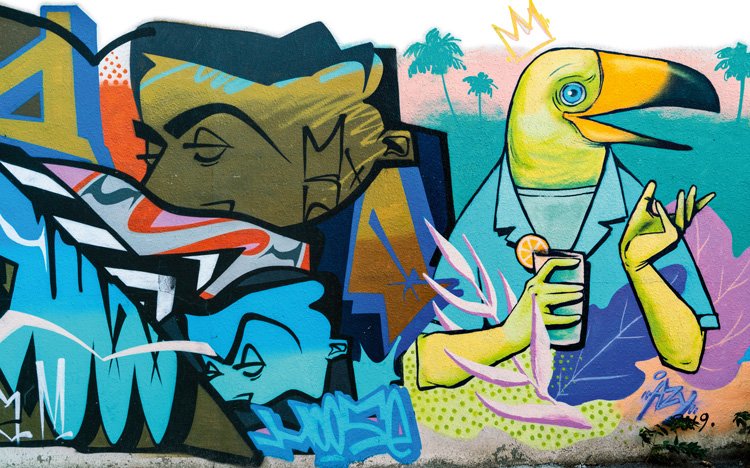
Spray Art in Baku: When the Walls of the City Begin to Speak
Baku is a city where the ancient and the modern meet at every step. Narrow alleys of the Old City, the futuristic lines of the Flame Towers, the calm Caspian promenade, and the lively streets filled with music and conversation — everything here breathes a unique rhythm.But beyond architecture and the sea, Baku speaks another language — the language of color, form, and creativity. It’s spray art, a form of street expression that turns the city’s walls into living canvases.Spray art in Baku is a young but rapidly growing phenomenon. Over the past decade, the city has transformed: murals, graffiti, and creative inscriptions have appeared on its walls, not just to decorate, but to tell stories.Each neighborhood has its own style. Some walls carry poetic phrases; others depict symbols of Azerbaijan or abstract bursts of color. Artists see the city as one endless canvas — a space where every wall becomes a starting point for dialogue.The first traces of spray art appeared in the early 2000s, mainly in industrial areas and on the city’s outskirts. Young artists, inspired by the scenes of Berlin, London, and New York, began to bring that same spirit of freedom to their own streets. At first, it was simple — tags and anonymous drawings. Later came full compositions: faces, ornaments, and words layered with meaning. Gradually, people began to see that street art could add life to the city rather than spoil it. Soon, Baku hosted its first legal art festivals and community projects — such as Urban Art Azerbaijan and Art on a Wall — offering artists open spaces for creativity. These initiatives helped transform what was once considered vandalism into an accepted and even celebrated form of culture.What makes Baku’s spray art special is its blend of tradition and modernity. Local artists often use national patterns — the buta, the pomegranate, the flame — symbols deeply tied to Azerbaijani identity. They reimagine these familiar motifs in bright, contemporary ways.Some works convey social messages about the environment, identity, or the pace of urban life. Others are simply emotional bursts of color and light — reflections of the artist’s inner world. Techniques vary: aerosol, stencils, brushes, mixed media, even digital projection. If you look closely, you can see how sunlight, wind, and the rough texture of ancient stone become part of the artwork — as if the city itself participates in the act of creation.Where to Find Street Art in Baku?Today, you can find spray art scattered throughout the city — in both well-known and hidden corners:Icherisheher (Old City) – rare, but deeply atmospheric pieces that blend ancient walls with bold modern color.Bayil and Sabail – home to large murals and experimental art spaces where creativity meets the sea.Nasimi District – a hub for local artists; residential blocks, playgrounds, and fences have become open-air galleries.Baku Boulevard and Park Bulvar – often host festivals, pop-up art events, and temporary installations that appear and vanish with the seasons.Each area tells its own story, adding a layer of personality to the city’s evolving image.Thanks to growing artistic communities, Baku’s street art scene has gained recognition.Projects like Urban Art Azerbaijan created a platform for artists to collaborate and exhibit legally. International artists joined too — from Turkey, Germany, and Italy — bringing fresh styles and new energy.The Art on a Wall initiative connected art with architecture, transforming blank building facades into vibrant cultural statements. These efforts showed that art doesn’t need to be confined to galleries — it can live where people live, breathe, and walk every day.What makes Baku’s spray art truly unique is its honesty. It doesn’t pretend to last forever. Paint fades, walls crumble, and yet, new pieces keep appearing — each one capturing a fleeting emotion, a moment in time. For some artists, it’s rebellion. For others, it’s a love letter to their city. And for the people who walk past these works every day, it’s a reminder that creativity is alive — even in the smallest corners of the urban maze.Spray art has become part of Baku’s visual identity. It brings warmth, individuality, and emotion to the modern cityscape.Where there were once empty gray walls, now there is color, rhythm, and life. For visitors, it’s a chance to see Baku differently — not just through museums and landmarks, but through the voices of its people. For locals, it’s a reminder that art isn’t only for galleries — it’s everywhere, alive, breathing, part of the city’s soul.Street art in Baku continues to evolve. New artists, techniques, and collaborations appear every year. One day, perhaps, the city will have full-fledged art districts — neighborhoods where creativity and history merge into one living story.Until then, the best way to experience it is simple: walk through the streets, look around, and listen. Because in Baku, even the walls have something to say.

Traditions of Azerbaijan: The Living Soul of a Nation
Azerbaijan is a land where the past and present don’t simply coexist — they intertwine. Here, traditions are not locked away in museums or buried in history books. They live in every home, in every gesture, in every smile. Customs are passed down not through written rules but through the warmth of family life, through shared meals, through that special atmosphere where respect and kindness are the foundation of everything.From the very first days of life, Azerbaijani culture surrounds a child with care and blessings. In the first forty days after birth, mother and baby are lovingly protected by the family — a time of peace, prayer, and quiet joy. When the child takes their first steps, it becomes a celebration for everyone: a small rug is spread on the floor, symbolic items are placed before the baby to predict their future path. These simple rituals are not only traditions — they are expressions of faith, love, and deep humanity.Hospitality is one of the hallmarks of Azerbaijani life. In this country, the door is almost always open, and the table is always set. It is believed that every guest brings good fortune, so they are welcomed not only with food but with warmth and sincerity. Tea — served in pear-shaped glass cups called armud — is much more than a drink. It is a symbol of friendship, a way to slow down time, share stories, and create memories.Among the most beautiful and deeply rooted traditions is the Azerbaijani wedding — a vivid union of ancient ritual and modern celebration. A wedding here is not just a ceremony, but a festival of music, dance, and joy. It begins with an engagement, followed by the henna night, when the bride’s hands are decorated with red patterns symbolizing love and happiness. On the wedding day, the sounds of the zurna and nagara fill the air, and the tables overflow with delicacies. As the bride enters her new home, she breaks a clay plate — a gesture to bring good luck and ensure that happiness never leaves the family.Music and poetry are woven into the fabric of Azerbaijani identity. The traditional art of mugham is more than music — it is the voice of the nation’s soul. A mugham performer does not simply sing; they tell a story, converse with the listener’s heart, and express emotions that cannot be captured in words. The same spirit lives in Azerbaijani proverbs and sayings — fragments of wisdom that have guided generations and shaped the collective character of the people.Traditional crafts remain a vibrant part of everyday life. Carpet weaving, metal engraving, jewelry making, and wood carving are not merely skills — they are art forms born of devotion. Every handwoven carpet tells a story through its patterns: symbols of the sun, peace, fertility, and harmony. These motifs have become a visual language, uniting the nation’s diverse regions and histories. Traditional garments, rich with embroidery and gemstones, are more than attire — they are expressions of identity, worn with pride and grace by Azerbaijani women for centuries.Despite rapid modernization, Azerbaijan continues to honor its roots. In both the bustling cities and quiet mountain villages, respect for elders, hospitality, and family values remain sacred. Many customs have been reimagined for modern life — folk songs are sung at weddings, national ornaments appear in contemporary architecture, and traditional dishes grace festive tables just as they did generations ago.The traditions of Azerbaijan are not relics of the past — they are a living heritage that breathes in every home, every family, and every heart. They embody the nation’s wisdom and resilience, its kindness and grace. They are the invisible yet powerful thread connecting the past to the present — making Azerbaijan not just a place to visit, but a place to feel, to belong, and to remember.

Azerbaijani Women: Spirit of the Land of Fire
The greatest wealth of any nation is its people. And perhaps the most precious treasure of Azerbaijan is its women. Through their stories, character, and strength, one can understand what this land truly is — what shapes its culture, its resilience, and its beauty. An Azerbaijani woman is not only the guardian of her home — she is part of the national identity, embodying grace, courage, intelligence, and kindness. Her spirit gives warmth and humanity to the heart of the country.The Woman as the Foundation of Family and SocietyTraditionally, Azerbaijani women are associated with family, motherhood, and care. They are the heart of the household, the connection between generations, the keepers of family traditions, and the source of peace. Yet, their influence extends far beyond the home. In today’s Azerbaijan, women excel in every field — as doctors, teachers, engineers, politicians, artists, and athletes. They contribute to the country’s progress while preserving its values. The Azerbaijani woman embodies a rare harmony of gentleness and strength, femininity and determination. She does not need to raise her voice to be heard. She can yield gracefully — but always with dignity. Her actions reflect respect for the past and faith in the future.Women Who Made HistoryThe history of Azerbaijan is rich with women whose courage and intellect shaped the nation. One of the brightest figures is Khurshidbanu Natavan, the 19th-century poetess and daughter of the Karabakh khans. Her poetry — tender yet powerful — captured themes of love, sorrow, and pride, becoming a timeless symbol of Azerbaijani womanhood. A true patron of the arts, she supported writers and painters, leaving a legacy that continues to inspire.Another remarkable woman, Leyla Mammadbeyova, became the first female pilot in the Muslim East. In the 1930s, when flying was still a novelty, she conquered the skies with grace and courage — proving that Azerbaijani women could literally rise above any limitation.And Shovkat Mammadova, Azerbaijan’s first opera singer, brought the voice of her nation to the world stage. Her artistry and determination opened the doors for generations of women to follow their dreams.These women were not exceptions — they were part of a long tradition of strength, intellect, and independence that continues to define Azerbaijani women today.The Modern Azerbaijani WomanIn modern Azerbaijan, women continue to balance tradition with progress. They are educated, ambitious, and active in public life — leading businesses, creating art, and representing their country on international platforms. They are mothers and professionals, dreamers and doers. They teach their children to love their homeland, to value honesty and kindness, and to respect both heritage and change. For them, family remains sacred — yet they no longer lose themselves in sacrifice. Instead, they seek harmony between love and self-realization. And in that balance lies the true strength of an Azerbaijani woman.The Character of Azerbaijani WomenAzerbaijani women embody beautiful contrasts. They are soft yet unbreakable, loving yet proud, emotional yet wise. Their love is deep — not possessive, but purposeful. They give wholeheartedly, asking for nothing in return. They teach their daughters to be brave, confident, and kind — and their sons to be honorable, respectful, and strong. They are patient and generous to those who deserve it, and fiercely protective when their loved ones are threatened. They value honesty above flattery, sincerity above appearances. Their strength was forged through generations — from grandmothers who survived war and hardship, to young women who thrive in the fast-changing rhythm of modern life, without losing their compassion and calm.A Reflection of Azerbaijan ItselfIn every Azerbaijani woman, you can see the reflection of her homeland.Her warmth is like the sun over Baku,her pride — like the majesty of the Caucasus Mountains,her patience — like the endless Caspian Sea.She is the symbol of this “Land of Fire”: passionate, generous, beautiful, and free. Through her eyes, one can see Azerbaijan not just as a country, but as a living, breathing soul — filled with history, heart, and light. The women of Azerbaijan are not merely part of its society — they are its soul and inspiration. They make the world softer, wiser, and kinder. And as long as the fire shines in their hearts, Azerbaijan will continue to live, to love, and to create.
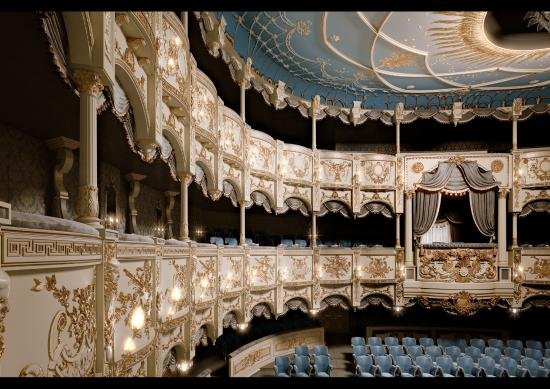
Azerbaijani Theatre: History & Cultural Uniqueness
Baku is a city where East meets West not only in architecture and cuisine but also in theatrical art. Theatre here is more than entertainment; it is a living history, a reflection of national identity, and a space for cultural dialogue. Azerbaijani theatre is unique because it blends folk motifs, European dramaturgy, and Eastern musical traditions, while also serving as a platform for social transformation, making the stage a symbol of cultural progress.History of Theatre in BakuTheatrical art in Baku began to flourish in the late 19th century. Early public performances—amateur plays and drama circles—quickly gained popularity among the local population. During this period, the first drama troupes emerged, performing in Azerbaijani, Russian, and French.A particularly significant development was the appearance of women on stage. Until the late 19th century, male actors typically played female roles, and women performing publicly were rare. The debut of female actresses not only enriched the theatrical craft but also symbolized social progress, reflecting changing norms and opening new opportunities for women in Azerbaijani society.In 1911, the Azerbaijan State Opera and Ballet Theatre named after M. F. Akhundov was constructed through the initiative of the oil magnate Dashdin Asadullayev. The theatre became a cultural center where European classical plays and national productions infused with folk music and traditions were performed on the same stage, creating a unique artistic environment.The Uniqueness of Azerbaijani TheatreAzerbaijani theatre stands out for several reasons:> Social progress through art: The stage became the first public space for women performers, breaking societal taboos and promoting cultural modernization> Cultural fusion: Eastern and Western traditions coexist, with folk music and classical vocals blending, and national motifs intertwining with European dramaturgy.> National productions: Classical works share the stage with operas and dramas inspired by Azerbaijani literature, mythology, and epic tales.> Aesthetic and architectural value: Theatre buildings in Baku are works of art reflecting the spirit of their eras and the cultural achievements of society.> Influence on the arts: The theatre has been a platform for developing national schools of acting, singing, and directing, nurturing new generations of artists.Key PersonalitiesUzeyir Hajibeyov (1885–1948)Composer, conductor, and pedagogue, Hajibeyov is the founder of Azerbaijani opera. Works like Leyli and Majnun laid the foundation for the genre, combining folk music with European techniques. Hajibeyov made theatre a platform for cultural synthesis and international recognition.Bulbul (Mikayil Mirza Mahmudov, 1897–1961)Renowned singer, educator, and cultural figure. Bulbul combined classical vocal techniques with folk traditions, popularized national music, and made it accessible on the opera and ballet stage. He played a pivotal role in establishing Azerbaijan’s vocal school.Surabyan and Mirza AliyevDirectors and playwrights whose productions became classics of the Azerbaijani stage. They introduced innovative directing methods and scenography, shaping a modern theatrical language.Contemporary FiguresModern directors and performers continue the legacy of the classics, organizing festivals, conducting masterclasses, and experimenting with form and content while preserving national identity on stage.Theatre ArchitectureTheatres in Baku are not just performance spaces but architectural monuments:Akhundov Opera and Ballet Theatre: A blend of European classicism with Eastern decorative traditions. Lavish interiors, painted ceilings, chandeliers, and ornate details create an unparalleled atmosphere.Drama Theatre named after Samad Vurgun: An early 20th-century architectural landmark reflecting the social and cultural trends of its time.Each theatre building is a museum preserving cultural heritage and illustrating the development of national identity.Theatre as a Mirror of History and CultureAzerbaijani theatre reflects both artistic achievements and social transformations:> It shows how society evolved and the role of women changed;> Demonstrates the synthesis of national and European traditions;> Serves as a platform for cultural dialogue and exchange;Shapes artistic perception and national pride through music, drama, and stage art.Even for those who never attend a performance, exploring the history of theatre, biographies of performers, and architectural masterpieces allows a deeper understanding of Azerbaijani culture and its unique artistic heritage.Want to dive deeper into Baku’s theatre scene with full listings, schedules, and what's on? Check out the Azerbaijani Opera & Music: Tour Guide to Baku — your go-to resource for theatres, performances, and musical events across the city.
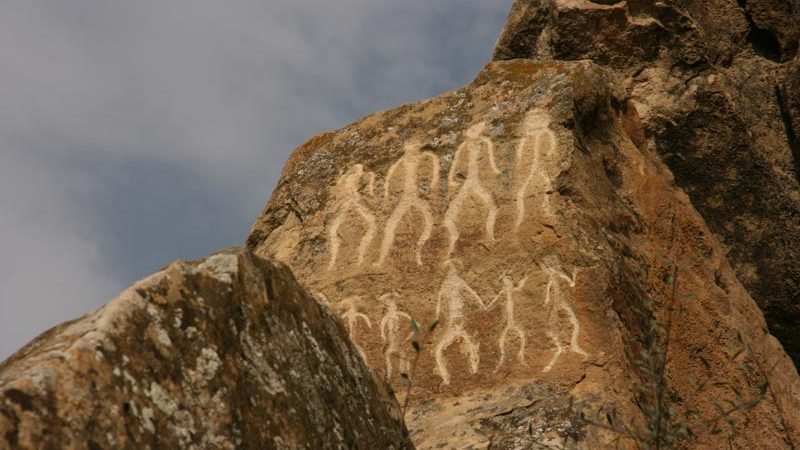
Gobustan Azerbaijan: An Exciting Journey Through Time
Imagine a place where every stone holds the memory of millennia, and the wind seems to whisper the stories of ancient tribes. This place exists — the Gobustan National Park, just an hour’s drive from Baku. Here, time feels like it has stopped, allowing tourists to walk in the footsteps of people who lived long before cities and modern civilizations.A World Painted on RocksGobustan’s main treasure is its petroglyphs — rock carvings numbering more than 6,000, some dating back 12,000–15,000 years. Each carving is like a page from a stone encyclopedia.On the rocks, you can see hunting scenes, ritual dances, depictions of bulls, deer, goats, and even boats. The boat carvings are especially remarkable — they indicate that the Caspian Sea was once higher and came close to the foot of the cliffs, suggesting that the ancient inhabitants were fishermen and navigators.One of the most famous carvings is the “Dance of Men”, where figures form a circle. Researchers believe this to be one of the earliest recorded symbols of collective rituals, connected to sun worship and reverence for nature.From the Stone Age to the Roman EmpireGobustan is unique in connecting multiple historical periods. In addition to prehistoric carvings, there is also a Roman legionary inscription from the 1st century AD — the easternmost evidence of Roman presence in Eurasia.Imagine a soldier from faraway lands, possibly from Syria or Mesopotamia, standing at the foot of these cliffs and leaving his mark. This connects Gobustan not only to Azerbaijan’s history but to the broader narrative of the ancient world.Rocks That SingAmong the cliffs is a natural wonder called Gaval Dash (“the Stone Drum”). When struck, it produces a resonant sound similar to a drum. Scholars believe it may have been used in ancient rituals or even as a form of communication between tribes.Tourists today love to test it themselves — striking the stone and feeling, for a moment, part of a ritual thousands of years old.Natural Marvel: Mud VolcanoesGobustan is also famous for its mud volcanoes. Azerbaijan has around 400, almost half of all mud volcanoes on Earth. Unlike fiery volcanoes, these emit cold clay and gas.The bubbling mud creates a unique landscape, almost otherworldly. Locals have long used the mineral-rich clay for skin and joint treatments. Tourists describe the volcanoes as resembling the surface of another planet — gray, mysterious, and strangely captivating.Legends and MythsGobustan is steeped in legends. One tale tells that the rocks served as gateways to the spirit world, and shamans would come here to hear the “voice of the earth.” Another legend suggests that each carving acted as a protective charm, ensuring hunters’ success and shielding them from evil spirits.Even today, locals treat Gobustan with reverence, considering it a sacred and powerful place.Open-Air Museum and Modern ExperienceA modern museum in Gobustan helps visitors understand ancient life. Inside, you can see:> reconstructions of dwellings,> ancient tools and pottery,> interactive 3D representations of rituals.These exhibits provide context, but the real magic lies outdoors, among the rocks, where the history truly comes alive.Tourist ExperienceVisiting Gobustan is more than a regular tour — it’s an experience. Tourists often note:> the profound silence rarely found in the modern world,> the play of sunlight across the rocks at sunset,> the feeling of standing where people drew animals and boats 15,000 years ago.This unique atmosphere gives a sense of eternity and a deep connection to human history.Practical Tips for Visitors> How to get there: about 65 km from Baku, roughly an hour by car; guided tours or taxis are available.> Best time to visit: spring (April–May) and autumn (September–October); summer can be very hot.> What to bring: comfortable shoes, water, and a hat.> Nearby attractions: mud volcanoes and the Caspian coastline.Interesting Facts> Gobustan has been a UNESCO World Heritage Site since 2007.> Azerbaijan has the largest number of mud volcanoes in the world.> Beyond petroglyphs, ancient human settlements with pottery and animal bones have been found here.> Many petroglyphs have survived in remarkably good condition despite thousands of years.Why You Should Visit GobustanGobustan is a rare place where one can witness the journey of humanity from prehistoric times to the Roman era. Every stone tells a story, while nature provides a dramatic backdrop worthy of a film.For tourists, it’s more than sightseeing — it’s an opportunity to feel history with your own eyes and ears, to hear the sound of the stone drum, breathe the steppe air, and see symbols left by our distant ancestors.
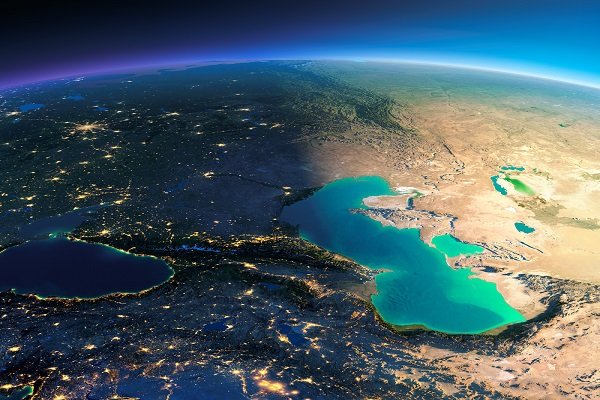
Caspian Sea: Secrets, History & Travel in Azerbaijan
The Caspian Sea is the largest enclosed body of water on Earth, covering more than 370,000 square kilometers. Despite its name, it is technically the world’s largest lake, with no connection to the global oceans. It touches five countries — Azerbaijan, Russia, Kazakhstan, Turkmenistan, and Iran. Yet, the Azerbaijani coast of the Caspian is unique: here, history meets modern life, and unspoiled nature coexists with the vibrant energy of Baku.🌍 History and Legends of the CaspianSince ancient times, the Caspian has been at the crossroads of civilizations. Archaeological findings show that people settled on its shores thousands of years ago. The sea served as a trade corridor linking East and West and was mentioned in the works of Herodotus and Ptolemy.Countless legends are tied to the Caspian. Ancient peoples believed that mysterious creatures and treasures lived in its depths. In Azerbaijani folklore, the sea is often described as a living being — sometimes generous and calm, sometimes unpredictable and harsh. During the Middle Ages, the Caspian held immense strategic importance. Caravans of the Great Silk Road passed along its shores, and fortress towns, caravanserais, and ports sprang up, many of which shaped the cultural heritage of Azerbaijan.🐟 Unique Nature and EcosystemThe Caspian Sea is famous for its biodiversity. It is home to about 850 species of animals, including fish, crustaceans, and rare marine life. The most iconic is the sturgeon, especially the beluga, which produces the world-famous black caviar. Azerbaijani caviar is considered among the finest in the world and is itself a symbol of the region’s gastronomy.Another unique inhabitant is the Caspian seal — the only mammal native to this sea. Once severely endangered, the species is now under protection, and conservation programs in Azerbaijan are helping to restore its population. The Azerbaijani coast of the Caspian offers diverse landscapes: sandy beaches along the Absheron Peninsula, wetlands that shelter migrating birds, and protected reserves full of rare fauna. Ornithologists point out that the Caspian is a vital stopover point for birds migrating between Europe, Asia, and Africa.🏖️ Tourism and RecreationToday, the Caspian coastline of Azerbaijan is one of the country’s most attractive destinations for both locals and international travelers.> Baku - the heart of Caspian tourism. The famous Baku Boulevard stretches for kilometers along the sea, with parks, promenades, cafes, restaurants, and beach clubs. Summer brings lively crowds, and evenings offer stunning sunsets over the Caspian with the Flame Towers glittering in the background.> Nabran - a popular resort area near the Russian border, filled with hotels, guesthouses, and recreation centers. It is a great destination for a relaxed seaside vacation.> Lankaran and Astara - the southern Caspian coast, where the subtropical climate creates lush greenery and warm, humid air. Visitors can swim in the sea, taste Lankaran’s famous tea, and enjoy the slow pace of life.> Northern resorts (Quba, Qusar) - though not directly on the shore, these regions are often combined with trips to the Caspian for their stunning mountain views and growing tourist infrastructure.For adventure seekers, the Caspian offers diving, yachting, kitesurfing, and fishing. Increasingly popular are boat tours that allow travelers to see Baku and the surrounding coast from the water.⚓ Caspian in Economy and the FutureFor Azerbaijan, the Caspian Sea is more than a natural wonder — it is a strategic resource. The seabed holds vast reserves of oil and gas, making the country a key player in the global energy market. At the same time, environmental issues are a growing priority. Azerbaijan is actively developing eco-tourism projects and supporting programs that protect the Caspian’s biodiversity. Looking ahead, the Azerbaijani coast is set to become even more attractive to travelers. New hotels and resorts are being built, public beaches are being expanded, and sustainable tourism initiatives are being introduced to balance comfort with nature preservation.The Caspian Sea is not just a geographical landmark — it is a symbol of Azerbaijan itself. Here, history and modernity intertwine, nature and culture coexist, and economic power meets tourism potential.For travelers, the Caspian promises a wealth of experiences: from relaxing on sandy beaches and tasting world-class caviar to exploring ancient legends and enjoying vibrant evenings along the Baku Boulevard. Visiting Azerbaijan without seeing the Caspian Sea means missing out on the true spirit of the country.
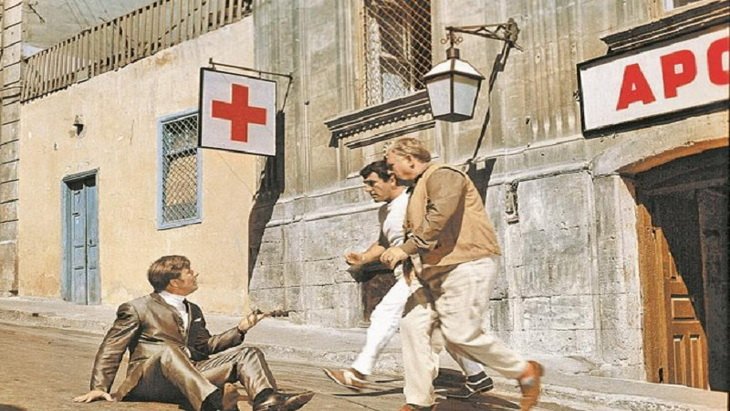
Baku Famous Films & Cinema: Iconic Movie Locations
Baku is not only the Caspian Sea, the blend of East and West, and the shine of the Flame Towers. The capital of Azerbaijan has also become a true star of the big screen. From Soviet comedies to international dramas, the city has served as the backdrop for stories audiences still love today. Walking through Icherisheher or along the seaside boulevard, you may suddenly find yourself standing where iconic movie scenes were filmed.The Diamond Arm - Soviet Comedy ClassicIt’s impossible to talk about cinema and Baku without mentioning The Diamond Arm (Brilliantovaya ruka, 1969). This legendary comedy by Leonid Gaidai is one of the most beloved films in Soviet cinema. While the plot takes place “abroad,” many scenes were actually shot in Baku. The Old City (Icherisheher) played the role of Mediterranean streets. Narrow alleys, ancient stone walls, and carved balconies perfectly created the “southern” atmosphere the director sought. The most famous scene is Yuri Nikulin’s character slipping on a stone staircase — a moment that became part of cinema history. Even today, tourists visit to find that very staircase. Some recreate the fall for fun photos, while others simply enjoy standing in a spot that feels both cinematic and authentic. In The Diamond Arm, Baku is not just a backdrop — it became one of the film’s characters, adding warmth and color to the comedy.Don’t Be Afraid, I’m With You! - A Musical AdventureAnother cult film tied to Baku is Don’t Be Afraid, I’m with You! (1981), directed by Yuli Gusman. Unlike The Diamond Arm, where Baku “played” a foreign city, here the Caucasus and Azerbaijani culture were proudly shown on screen. The film is a mix of comedy, adventure, and music, with Azerbaijani singer and actor Polad Bülbüloğlu in the lead role. His songs became just as iconic as the movie itself, and are still remembered fondly by viewers. Some scenes were filmed in Baku and its surroundings. The bustling streets, courtyards, and glimpses of local life give the story authenticity. The movie is not just entertainment — it’s a journey into the spirit of Azerbaijan in the 1980s: musical, joyful, and welcoming.Ali And Nino - The Story Of Eternal LoveThe international project Ali and Nino (2016), based on the famous novel by Kurban Said, once again brought the world’s attention to Baku. The film tells the tragic love story of Ali, a Muslim boy from an aristocratic family, and Nino, a Georgian Christian girl. Their romance unfolds against the backdrop of World War I, revolution, and the short-lived independence of Azerbaijan. The movie carefully recreates the atmosphere of early 20th-century Baku. Historic districts, old courtyards, and preserved facades became natural sets. Unlike Soviet films where Baku often “played” other cities, here it portrayed itself — cosmopolitan and dramatic, at the crossroads of cultures and destinies.Baku and CinemaBeyond these three iconic films, Baku appeared in many others. Soviet directors often chose the city as an “Eastern” setting for adventure dramas and comedies. Its mix of medieval streets, oil-boom mansions, and the seaside boulevard made it a universal filming location. In recent decades, foreign filmmakers have also discovered Baku: Turkish and French films, Indian music videos, and Netflix documentaries have all been shot here. Today, the Flame Towers, the seaside boulevard, and Icherisheher frequently appear on screen, impressing audiences with their striking contrasts: old and new, East and West, tradition and modernity.Why Baku Attract FilmmakersBaku is a city that can be many things. It can play the role of a medieval fortress, a southern port, an Eastern town, or a futuristic metropolis. This versatility makes it a magnet for filmmakers. For tourists, this means one thing: walking through Baku is like walking across a giant open-air film set. There’s the staircase where Nikulin fell, the courtyard where Polad Bülbüloğlu sang, the streets where Ali and Nino walked.
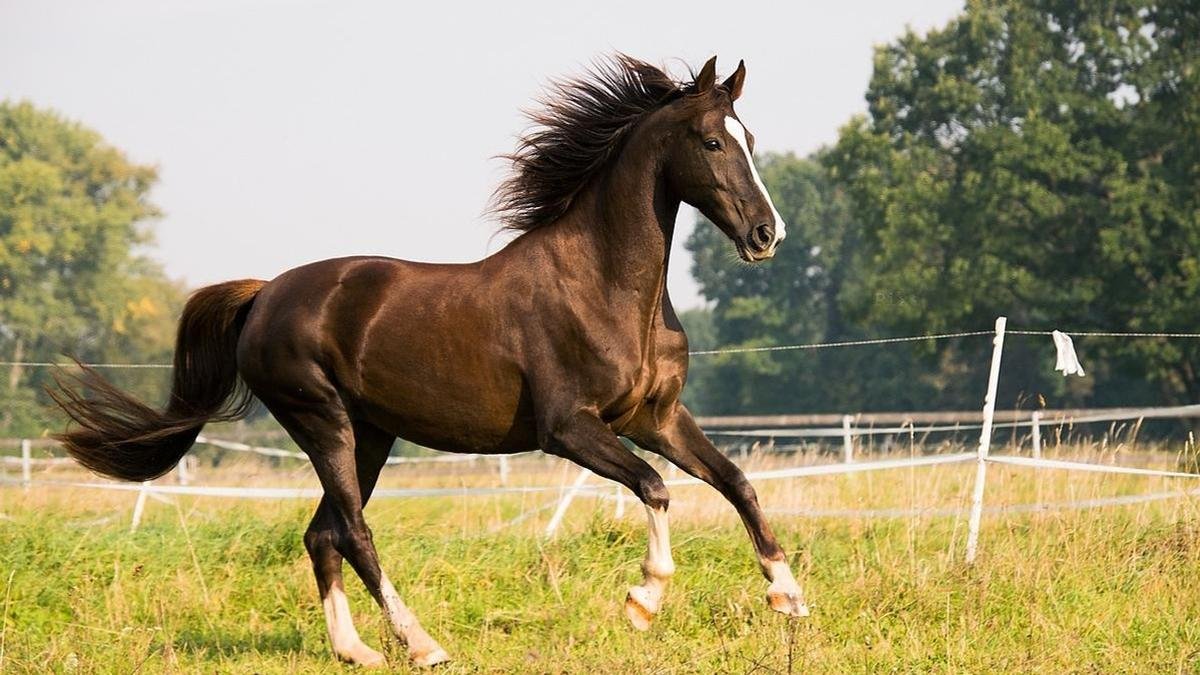
Azerbaijani Horses: History, Grace, Freedom's Spirit 2025
The Equestrian Heritage of AzerbaijanIn Azerbaijan, the horse is far more than just a means of transport or a domesticated animal. It is a symbol. It is heritage. It is a graceful silhouette against the backdrop of the setting sun over the mountains — and at the same time, an invisible thread that links ancient tribes to the modern nation.The history of horses in Azerbaijan runs deep — stretching back thousands of years. Archaeologists have found evidence of their presence as far back as the Bronze Age. In the petroglyphs of Gobustan, horses appear often — in harness, in hunting scenes, even in ritual depictions. Even then, they were not just companions in labor, but part of life itself.Across the centuries, the horse has accompanied every soul who lived on this land. From herders to warriors, from shahs to poets. In the Azerbaijani epic Kitabi Dede Gorgud — one of the oldest literary monuments of the Turkic world — horses are portrayed with particular reverence. They are more than mounts; they are the heroes’ companions, bearers of fate, living beings with their own character and dignity.One breed holds a special place in this story — the Karabakh horse. Proud, elegant, enduring. Its lineage stretches back centuries, and its appearance is striking: a noble posture, silky coat, eyes that seem to reflect something almost human. These horses are born of the mountains — accustomed to steep paths, sudden winds, rugged terrain. It’s no surprise the locals cherished them not just for labor, but also for celebration, competition, and song.Traditions That Echo with HoovesIf you listen carefully to Azerbaijani culture, you can almost hear the echo of hooves within it. Horses appear in dance, in music, in tales passed down through generations. In wedding ceremonies of the last century, the groom would often arrive on horseback — proud, dignified, as if stepping straight from a page of ancient tradition.One of the oldest and most spectacular traditions is the game of chovgan — a horseback sport and ancestor of modern polo. On open fields, to the cheers of spectators, men on horseback compete for a ball, skillfully guiding their horses. It’s a game that requires not just strength and agility, but an extraordinary connection between rider and steed. Chovgan holds such cultural importance that in 2013, it was added to UNESCO’s list of intangible cultural heritage.The story of the Karabakh horse itself has become deeply symbolic. It is not just a breed. It is a symbol of resilience, strength, and national identity. Locals even refer to it as the "living gold of Karabakh" — for its glowing amber coat and its elegant gait.The 20th century was difficult for this proud breed: war, loss of pastures, and the decline of horse farms took their toll. The population dwindled, and at one point the Karabakh horse teetered on the brink of extinction. But it endured. Thanks to the dedication of enthusiasts, farmers, and government-backed programs, the number of purebred horses is once again on the rise.These horses are not just hardy — they possess a rare nobility, a quiet strength that speaks without words.Horses Today: Between Heritage and TourismIn the 21st century, horses have not vanished from Azerbaijani life. On the contrary — there is a quiet, steady revival. Purebred horses are once again being bred; equestrian clubs are opening; and new horseback tourism routes are being developed through some of the country’s most beautiful landscapes. More and more people — both locals and visitors — are discovering the joy of connecting with this noble animal.Today, the horse is returning to daily life — but in a new context. No longer as a beast of burden, but as a companion in leisure, a part of ecotourism, a friend and a partner.And most touchingly — in many places, horses are given names, just like people. They are cared for with affection. People talk to them. Because here, a horse is not a tool.It is the soul of the land.
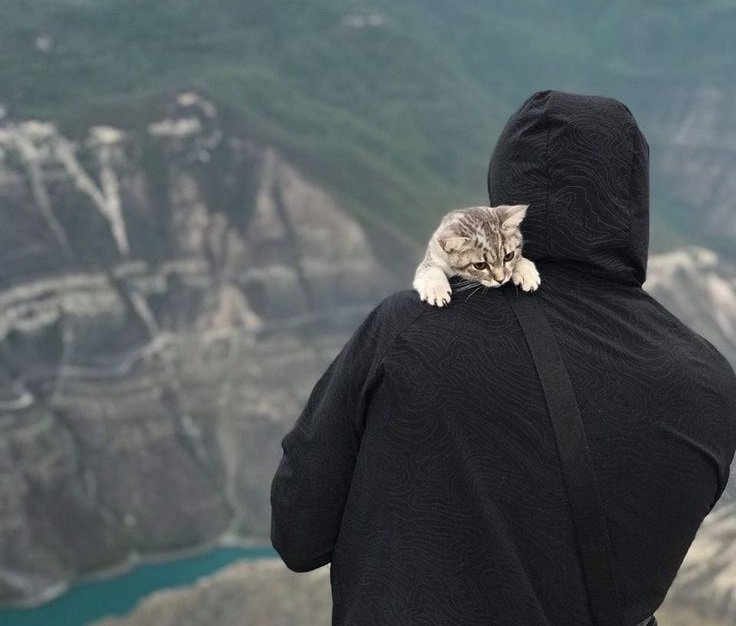
Azerbaijani Men: Strength Without Compromise (2025)
Men in Azerbaijan have long played a key role not only in shaping family life, but also in the development of society as a whole. They are not merely bearers of a family name, pillars of the household, or performers of specific duties. The Azerbaijani man is a deeply respected figure, embodying honor, responsibility, generosity, and a drive for progress. Today, in the 21st century, this image remains strong and continues to evolve, enriched with new dimensions that combine both traditional and modern values.Family - The Core Value of the Azerbaijani ManIn Azerbaijani culture, the family is considered a sacred space, and the man typically holds a central role within it. He is seen not only as the provider and protector but also as a wise advisor, a mentor to his children, and a source of emotional support for both his spouse and elders.From an early age, boys are taught to be responsible for their loved ones. They are raised in an atmosphere of respect for elders, love for their homeland, and a desire to be useful to their family and society. It is within the family circle that the key traits of the Azerbaijani man are shaped — generosity, determination, respect for women, patience, and kindness.Work, Honor, and DignityAzerbaijani men have long been known for their strong work ethic. Whether they are farmers, engineers, teachers, or businessmen, each strives to do their job with dignity, quality, and heart. The drive for self-development and honest work is not just a personal virtue — it is part of the national character.Across the country, men can be found proudly continuing family traditions as craftsmen, farmers, or builders. At the same time, thousands of young men are choosing modern professions in fields like IT, entrepreneurship, and science. They create startups, develop technologies, and represent their country at international forums.More and more, modern Azerbaijani men are seeking quality education. Universities in Baku, Ganja, Nakhchivan, and other cities are preparing generations of highly qualified specialists — engineers, lawyers, economists, doctors.Many Azerbaijani men also pursue education abroad, returning with new knowledge and experience. They become important bridges between national values and global trends, blending the best of Eastern wisdom with Western professionalism.Cultural Wealth Preserved by MenAzerbaijani men play a significant role in preserving and developing the country’s cultural heritage. Musicians, poets, actors, writers, carpet weavers, and folk craftsmen — many of them are well-known figures who have contributed to world culture.One of the most notable elements is mugham — a unique musical genre recognized by UNESCO as part of the Intangible Cultural Heritage of Humanity. It is traditionally performed by men, who pass down their knowledge and mastery from generation to generation.Men are also actively involved in the growth of cinema, theater, literature, and visual arts. They create works that blend national identity with contemporary artistic expression.Heroism, Courage, and Service to the HomelandAn essential part of the Azerbaijani man's identity is courage and a willingness to defend his country. Throughout history — from the Karabakh War to peacekeeping missions — Azerbaijani soldiers and officers have demonstrated remarkable heroism and selflessness.The country’s military history holds many examples of bravery, where ordinary men became true heroes — not for glory, but out of a sense of duty and conviction. Their acts of valor are remembered in books, films, monuments, and most importantly — in the memory of the people.The Modern Man: Balancing Tradition and ProgressToday’s Azerbaijani man is someone who maintains respect for traditional values while confidently moving forward. He can be a caring father, a loving husband, a successful professional, an active citizen, and a contributor to cultural life.The younger generation increasingly embodies new forms of male leadership — emotional maturity, openness, involvement in volunteer work, and support for equality. These changes do not reject traditional foundations; on the contrary, they enrich them, making the image of the modern man more complex, well-rounded, and relevant.Men as Part of a Changing SocietyMen in Azerbaijan continue to play an important role in shaping both family and public life. They contribute in many ways — as professionals, artists, educators, and active members of civil society. Some preserve and pass on traditions, while others seek new paths for self-realization in a rapidly changing world.As in many other countries, the concept of masculinity in Azerbaijan is gradually evolving. Today, it increasingly includes not only strength and responsibility but also empathy, adaptability, and a commitment to personal growth. Supporting this process requires space for dialogue, reflection, and mutual respect — where tradition and progress can coexist.In this ongoing movement forward, Azerbaijani men are not idealized symbols, but real individuals — each with their own story, challenges, and contributions. And it is this diversity that makes their role in society truly meaningful.
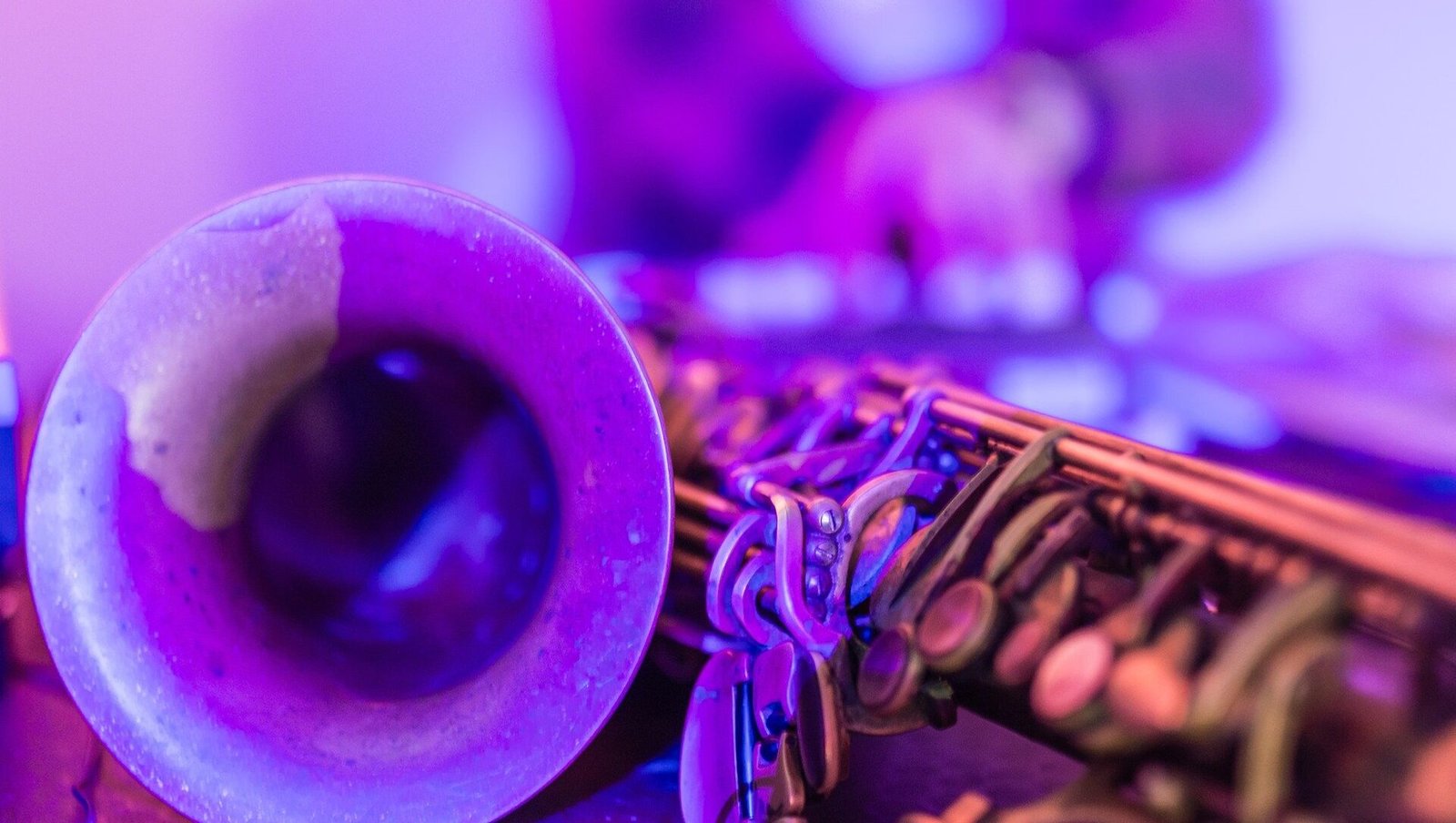
Jazz in Azerbaijan: Its Past, Evolution, and Present
🎷Jazz is more than just music. The journey of jazz in Azerbaijan was not an easy one: it began during a time when such music was considered a manifestation of bourgeois ideology, and performing it was almost an act of defiance. Nevertheless, Baku became one of the few capitals in the former USSR where jazz not only survived but evolved into an art form with its own school, its own heroes, and its own soul.The first sounds of jazz were heard in Azerbaijan in the 1930s. At that time, it was music for the “initiated” — rare radio enthusiasts, naval officers, students who had traveled abroad, and of course, musicians seeking the freedom of improvisation. In the Soviet Union, jazz was perceived ambiguously — as something ideologically alien. But it was precisely this “foreign” nature that attracted young people in Baku, who were longing for new forms of self-expression.Baku’s intelligentsia, always known for its cosmopolitan spirit and passion for the arts, quickly embraced jazz as part of the urban cultural fabric. It could be heard at apartment gatherings, in clubs, and within the walls of music schools — despite official bans and censorship. It took root, grew deep cultural connections, and blended so organically with local musical traditions that it long ago ceased to feel “foreign.”You can't talk about jazz in Azerbaijan without mentioning the name Vagif Mustafazadeh — the man who created a truly unique musical synthesis. He didn’t just play jazz; he fused it with mugham, an ancient form of Azerbaijani classical music. The result was something extraordinary — music where the freedom of jazz met the spiritual depth of the East.Mustafazadeh was born and raised in Baku, in an atmosphere where Western and Eastern traditions didn’t clash, but complemented one another. His playing was more than just music — it was a philosophy, reflecting the inner state of a person striving for harmony.Many called him the “Keith Jarrett of Baku,” but in reality, Vagif was entirely original. 🎹 He created his own genre — jazz-mugham, which is now regarded as a national treasure. His work influenced not only Azerbaijani musicians, but also the jazz scene far beyond the country’s borders.After the collapse of the Soviet Union, jazz in Azerbaijan experienced a new wave of development. The removal of ideological restrictions, open borders, and a growing interest in ethnic music all played a significant role.Today, the Baku Jazz Festival is held annually — one of the most important jazz forums in the region, attracting artists from all over the world.The contemporary scene features standout names such as: - Aziza Mustafazadeh — the daughter of Vagif and a world-renowned jazz pianist. - Rafik Babayev, Alexey Botyan, and Iskander Gasanov — torchbearers of the tradition who blend jazz with elements of national music. Young groups like Rast and Bakustic Jazz experiment with sound while staying true to the essence of jazz as a living, emotional, and intellectual art form. Baku’s jazz clubs — such as The Landmark Jazz Club and Jazz Center — regularly host concerts, jam sessions, and masterclasses. Jazz is not only alive — it is evolving, inspiring, and shaping a new generation of listeners and musicians.Jazz in Azerbaijan is more than just a musical phenomenon. It is a reflection of the national character — free, flexible, open to dialogue, yet deeply rooted in tradition. The fusion of jazz and mugham is no accident; it is a natural continuation of Azerbaijan’s historical path as a cultural bridge between East and West. Today, when you listen to jazz in Baku, you are not simply enjoying music — you are hearing the voice of a city that feels the present moment while never forgetting its roots.
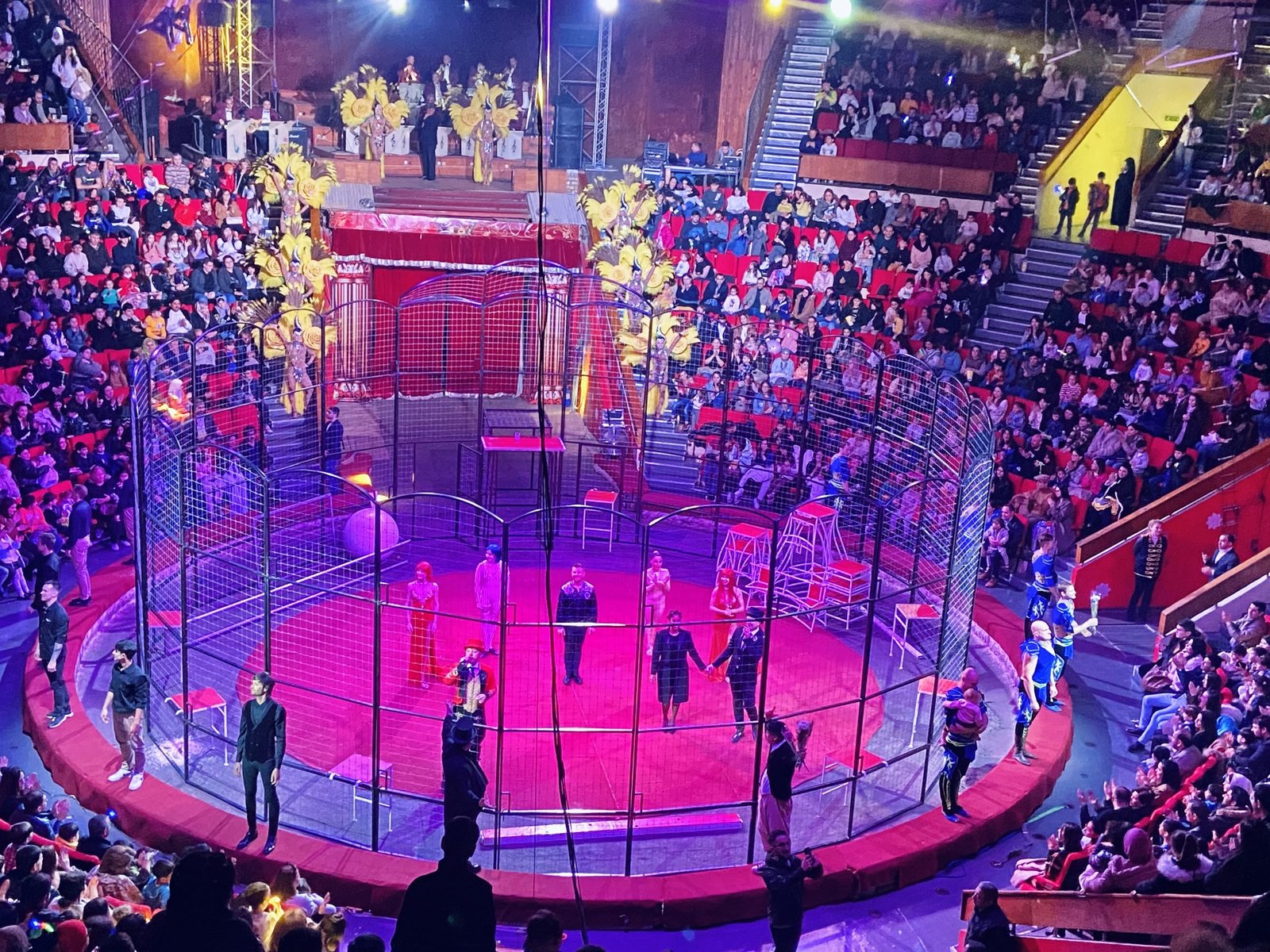
Baku Circus - Where The Magic Comes To Life
The Baku Circus is one of the brightest cultural landmarks of the capital, where every performance turns into a fairytale. Here, music, acrobatics, trained animals, and an unmatched festive atmosphere come together. The history of the circus goes back to the 20th century: the first stone building of the Baku Circus was constructed in 1900, and since then circus art has become an integral part of the city’s cultural life. The modern building that we see today opened its doors in 1967. Built in the style of late modernism, it immediately became one of Baku’s architectural highlights.Over the years, renowned troupes from Russia, Europe, and Asia have performed in Baku. Many Soviet circus stars won the hearts of audiences right here. The Baku Circus has always been famous for its warm, almost homely atmosphere — and that feeling is still alive today. Visiting the circus is not only a childhood joy but also a chance for adults to dive once again into the world of wonder. To this day, the Baku Circus remainsa place where dreams take shape, and audiences of all ages leave with a smile.Today, the circus continues to delight audiences with colorful show programs, where modern productions intertwine with classical circus acts. The repertoire includes not only traditional acrobatics and jugglers but also new creative experiments that every performance truly unique.For both locals and visitors, the Baku Circus is more than just a cultural venue — it is a symbol of warm memories. Many Baku families come here together, passing down the tradition of circus visits from generation to generation, turning it into a cherished family ritual.
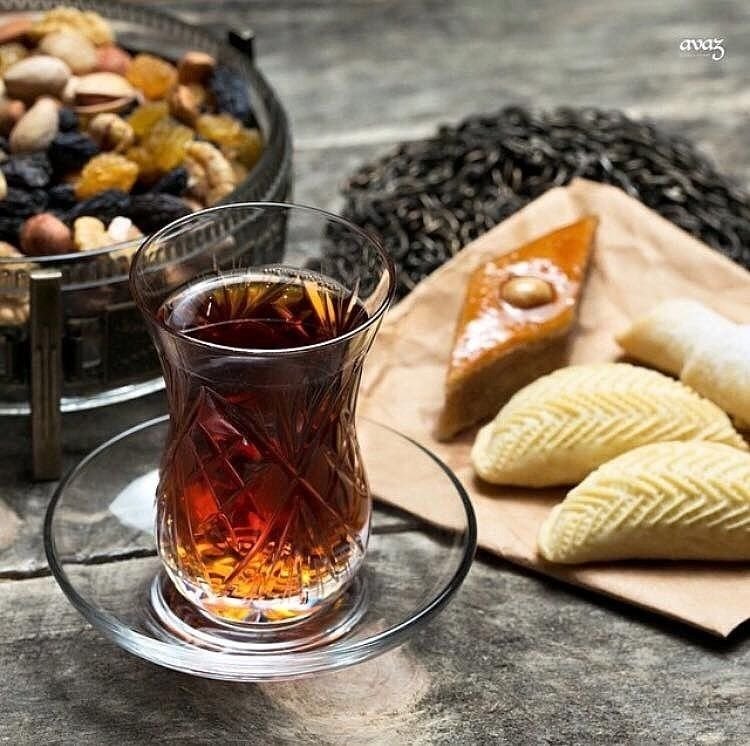
Azerbaijani Tea: Traditions, Flavors, and Rituals
Tea in Azerbaijan is more than just a beverage.It is a symbol of hospitality, family traditions, and cultural heritage. Azerbaijanis know how to turn tea drinking into a true ritual: tea is brewed in samovars, served in small glass cups placed on saucers, and accompanied by sweets — baklava, kutab, honey pastries, dried apricots, and sherbet. A cup of tea here is not only a way to relax but also a reason to gather, converse, discuss important events, and strengthen friendship and hospitality.The history of tea culture in Azerbaijan dates back to the 19th century, when Lankaran and its surroundings became centers for growing green tea. The mild climate, fertile soil, and abundant rainfall create ideal conditions for tea plantations. Lankaran tea is known for its gentle aroma and rich taste, and it retains its health benefits thanks to traditional methods of leaf processing.In Azerbaijan, tea is not just green or black. In mountainous regions such as Gabala and Ismayilli, tea is often brewed with the addition of local herbs: mint, thyme, blackcurrant leaves, and even rose petals. Each family may have its own unique tea recipe, passed down through generations. Some families add a pinch of sugar directly to the samovar, while others prefer to serve sugar cubes separately, allowing each guest to adjust the sweetness to their liking.Traditional tea houses, or "çayxana", are a special chapter in Azerbaijan’s culture. In historic towns like Baku, Sheki, and Lankaran, these tea houses have been preserved since the 19th century. They are cozy spaces with wooden tables, carved chairs, and samovars. Every guest feels welcome here, and the relaxed atmosphere fosters warmth and comfort. Tea houses serve as meeting places for friends, family gatherings, and even business discussions — where every cup of tea becomes part of the conversation and the connection.Tea is closely linked to cultural traditions and celebrations. At weddings, family festivities, and national holidays, tea is always served as a sign of respect and care for the guests. In some regions, there’s even a tradition of serving specific sweets with tea depending on the time of day or the occasion. Tea is closely linked to cultural traditions and celebrations. At weddings, family festivities, and national holidays, tea is always served as a sign of respect and care for the guests. In some regions, there’s even a tradition of serving specific sweets with tea depending on the time of day or the occasion.Azerbaijani tea is deeply intertwined with the country’s history and art. In cities and villages, you can still see old samovars decorated with carvings and ornaments, as well as traditional teapots that carry memories of generations. Every cup of tea is a small journey through time — a chance to touch the country’s heritage and feel its soul.By immersing yourself in Azerbaijan’s tea culture, you not only discover flavors and aromas but also its history, traditions, and human connections. From the green plantations of Lankaran to the cozy tea houses of old Baku, every cup of tea tells a story — uniting the past and present and offering a unique cultural experience. Azerbaijani tea is not just a drink — it is a small celebration to be shared with loved ones and friends, letting you feel the heart of the country with every sip.

The Zangezur Corridor: Prospects for Azerbaijan and the Tourism Industry Introduction
The Zangezur Corridor is a key transport artery connecting Azerbaijan to Nakhchivan, opening up new opportunities for the region's development. This project holds significant geopolitical and economic importance, but it also has the potential to become a major milestone for Azerbaijan’s tourism industry. In this blog, we will explore how the implementation of the Zangezur Corridor can impact tourism and what new opportunities it will create for travelers.Historical ContextThe Zangezur Corridor, which has gained considerable attention in recent years, links mainland Azerbaijan with Nakhchivan. Historically, transport routes between these territories were interrupted, limiting trade and tourism opportunities. However, with the realization of the corridor, Azerbaijan has a unique chance to restore transportation links and accelerate the integration of its regions into international transport and trade networks.Current Status of the ProjectCurrently, the Zangezur Corridor is under active construction, and the project has made significant progress. With the completion of infrastructure works, it is expected that transport accessibility will improve, simplifying the movement of people and goods, and opening up new routes for tourists. The Azerbaijani government is already actively developing plans to boost the tourism infrastructure along the corridor.Political and Economic AspectsThe political agreement among all parties on the implementation of the Zangezur Corridor pushes the project toward success. Importantly, the corridor will unlock new opportunities for business, particularly in logistics and trade. Additionally, the project holds strategic value for expanding economic ties with neighboring countries and enhancing Azerbaijan’s attractiveness as a transit hub.Tourism ProspectsOne of the most important aspects of the Zangezur Corridor is its impact on Azerbaijan’s tourism sector. With the introduction of new routes for travelers and the improvement of infrastructure, tourism in the region is set to grow significantly. New tourist routes, including cultural and natural attractions such as ancient fortresses, temples, and unique landscapes, can be developed along the corridor.Azerbaijan will be able to offer travelers not only well-known historical sites but also unusual routes through less populated yet picturesque regions. For example, journeys along the Zangezur Corridor will allow tourists to explore mountains, rivers, and lakes that are less well-known but have great potential for eco-tourism and active recreation.ConclusionThe Zangezur Corridor is not only an important economic project but also a key avenue for tourism development in Azerbaijan. With the realization of this corridor, new opportunities will arise for tourists to explore Azerbaijan from a unique perspective. In the future, thanks to improved transport links and the development of tourism infrastructure, the Zangezur Corridor could become one of the most important tourist routes, attracting travelers from all over the world.
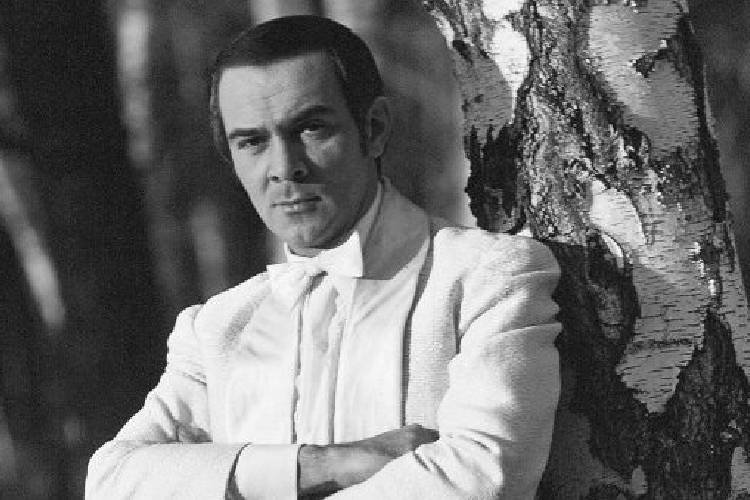
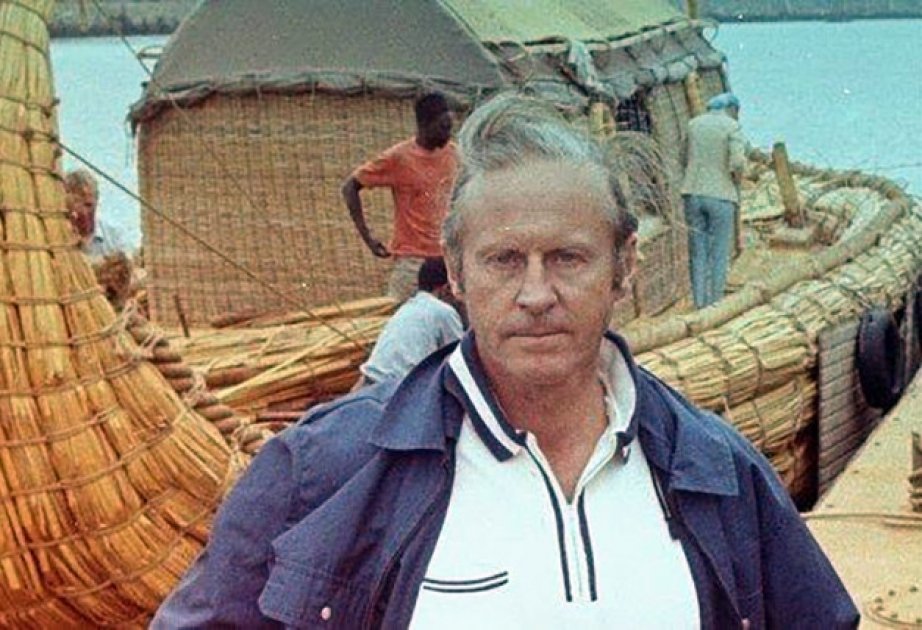
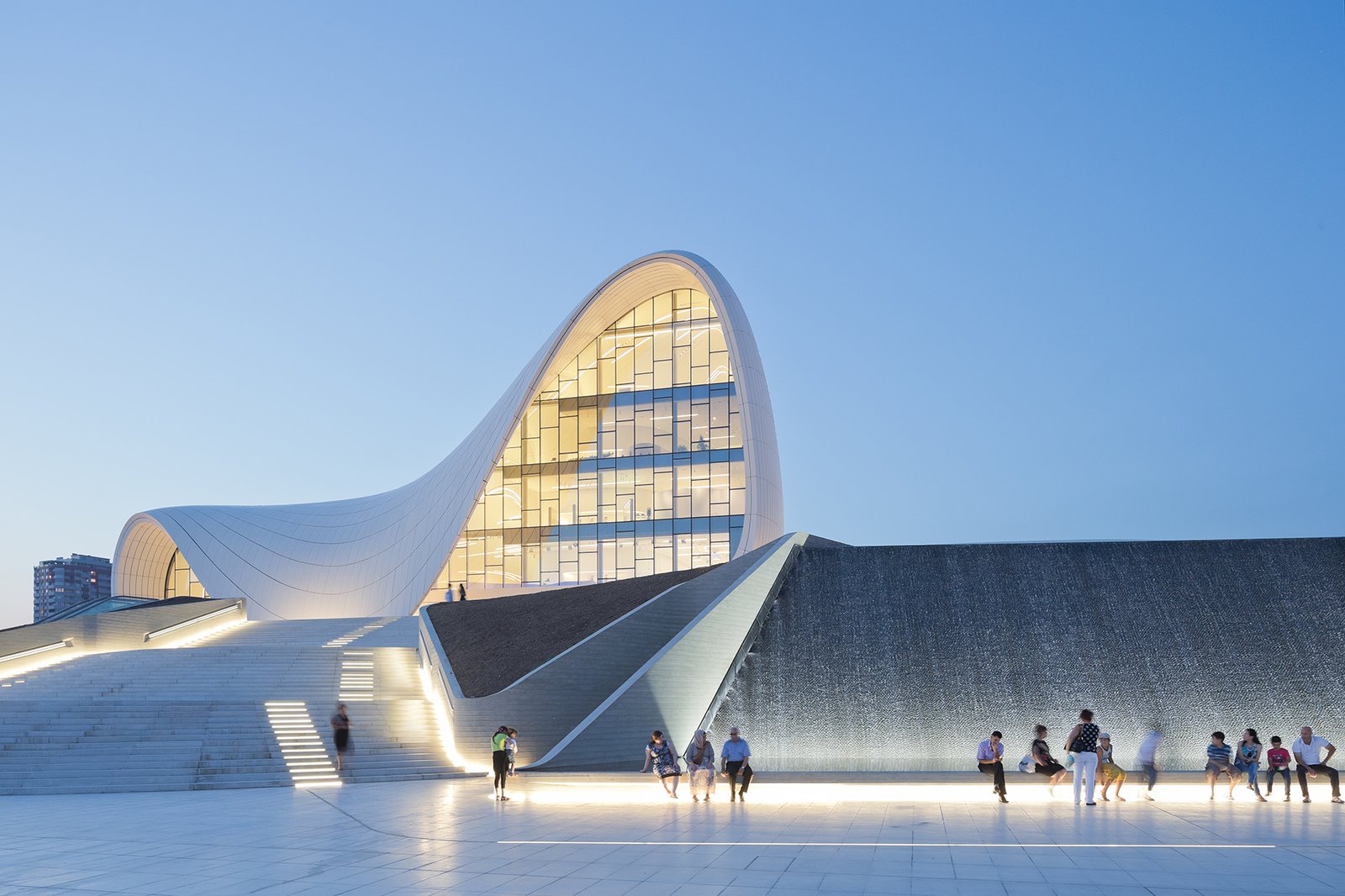
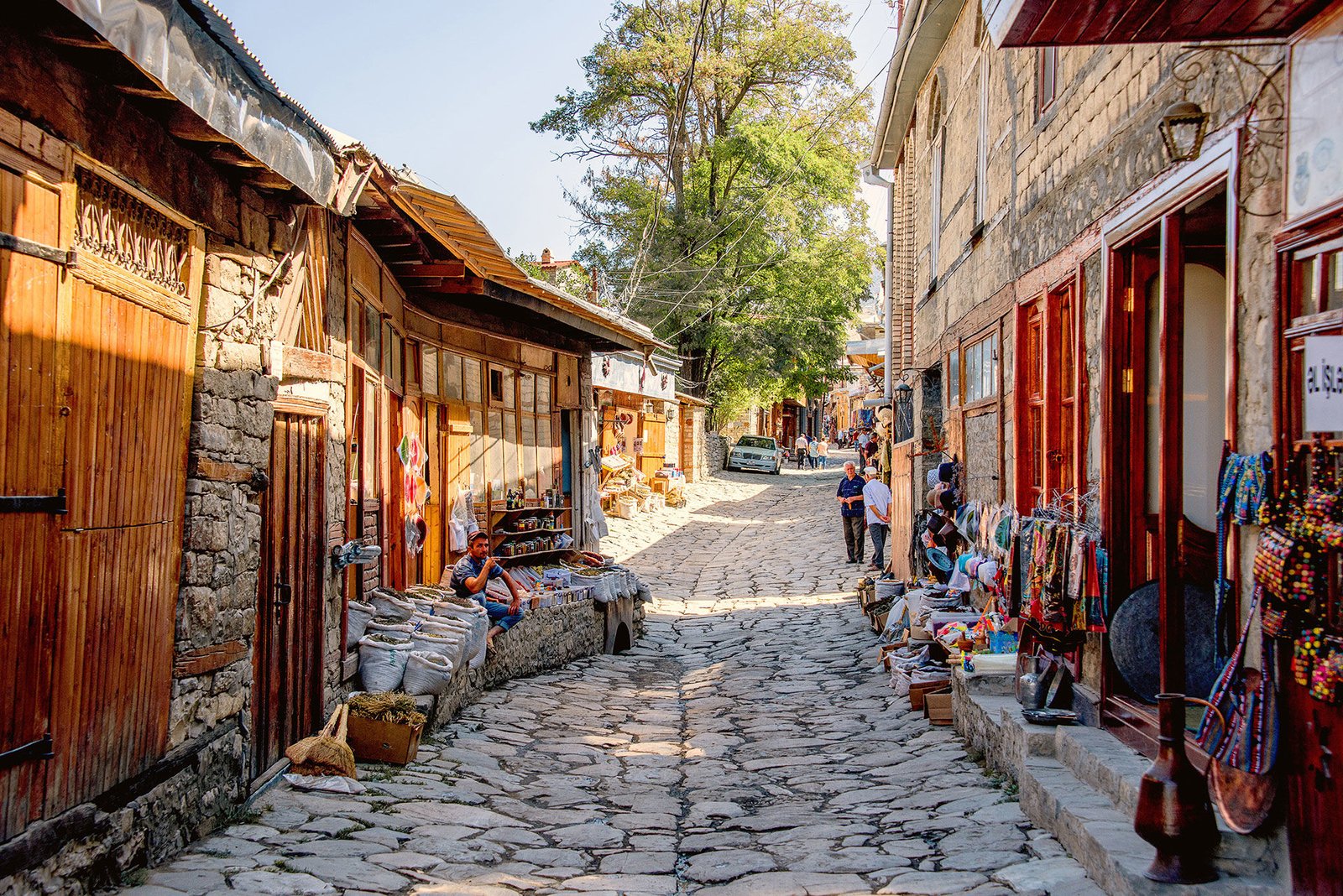

.jpg)
